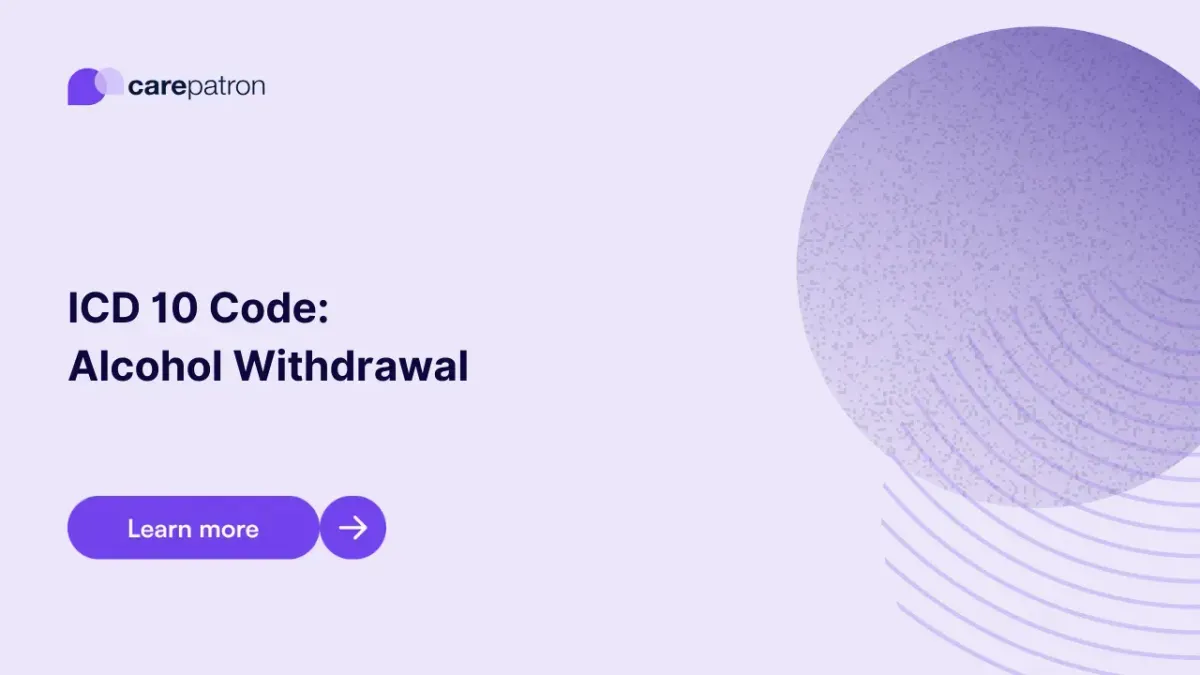
Alcohol Withdrawal ICD-10-CM Codes
Read this short guide and learn about the alcohol withdrawal ICD codes you can use. Learn essential clinical and billing information.
Use Code
Commonly asked questions
The ICD-10 code for alcohol use, unspecified, is F10.9. This code is used to classify cases where alcohol use is present but not further specified as abuse, dependence, or another specific alcohol-related disorder.
Alcohol withdrawal typically begins within 6 to 12 hours after the last drink, with symptoms peaking between 24 to 72 hours. Mild symptoms may start early, while more severe symptoms, such as delirium tremens or seizures, can occur within the first 48 to 72 hours. Most physical withdrawal symptoms resolve within 7 to 10 days, but psychological symptoms like anxiety or sleep disturbances may persist for weeks or even months.
Yes, alcohol withdrawal can cause permanent damage if not managed properly. Severe withdrawal, particularly if it leads to complications like seizures or delirium tremens, can result in lasting brain damage or even death. Chronic alcohol use and repeated withdrawal episodes are also associated with long-term cognitive deficits and alcohol-related brain damage, including conditions such as Wernicke-Korsakoff syndrome and alcohol-related dementia.
EHR and practice management software
Get started for free
*No credit card required
Free
$0/usd
Unlimited clients
Telehealth
1GB of storage
Client portal text
Automated billing and online payments
